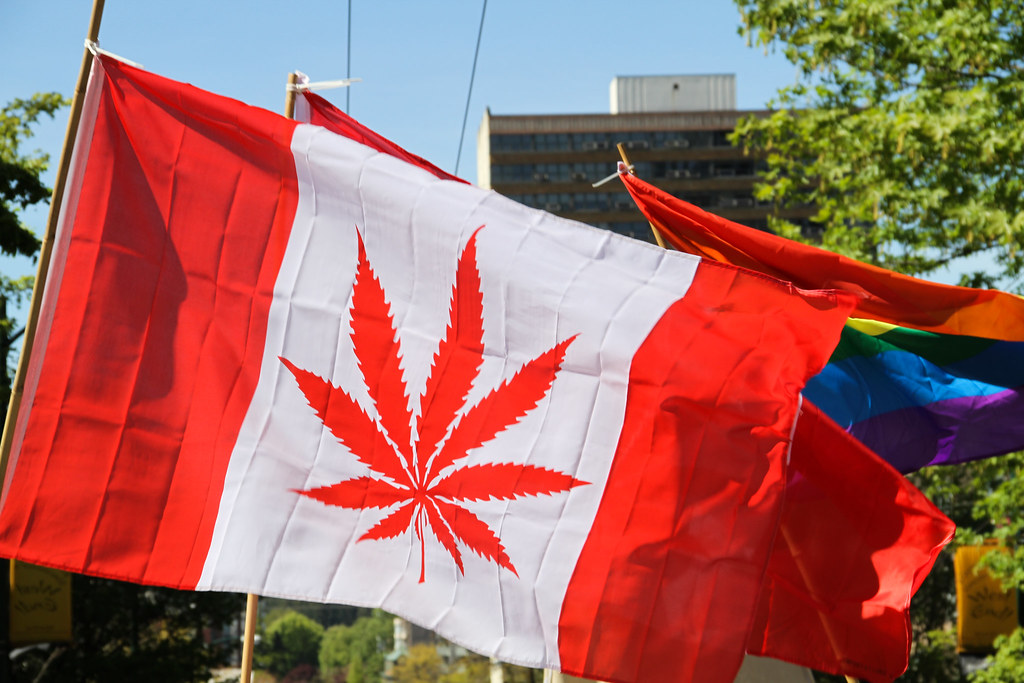According to the Incident-Based Crime Statistics Database, cannabis crimes associated with youth decreased by half in the last five years in Ontario.
The majority age associated with cannabis production, trafficking and distribution is between 12 to 21 in Canada. By 2017, the rates of cannabis-related criminal activity committed by youth and adults was almost equal.
In Ontario, the crime rate for youth cannabis crimes dropped to 15.27 in 2017. In 2013, the rate was 37.45.
Despite this decrease, charges were laid on youth three times more than adults. However, these numbers do not include juveniles who were not charged.
In October, people who are nineteen and older will have legal access and possession of cannabis. It will still be illegal to sell cannabis to adolescence.
However, experts and substance and health specialists predict youth will be more open to discuss using cannabis to get the help they need.
Eugene Oscapella, a professor of criminology at the University of Ottawa, says drug policy is a human rights and justice issue.
“We are taking people, we’re stigmatizing them, we’re criminalizing them, we’re impairing their ability to earn a living, we’re impairing their ability to travel, we’re intruding their privacy and their private behavior, so there’s all sorts of human rights issues involved,” says Oscapella.
Oscapella says most pot sales are made by juveniles. The common age of first using cannabis is 16 or 17, and the heaviest consumption is between 15 to 24.
He adds there will be a reduction of some parts of crime one cannabis becomes legal, but there will still be a black-market targeting youth. However, he adds they will not likely be accessing cannabis through typical organized crime.

“It might be somebody’s older brother going into a store and buying cannabis … and selling it to younger kids and taking a small profit,” says Oscapella.
Oscapella says the most fundamental solution is to understand why people use drugs, why do some use it in a problematic way, and how do we help them.
Health specialists, such as Jessica Brett, a nurse at Ottawa Public Health (OPH) for three years, is working on putting together public education and policy analyses in preparation for legalization.
She says OPH supports legalization, specifically using regulations for the public’s best interest in health.
Brett says that criminalizing cannabis leads people, particularly youth, to experience social harms.
“Legalizing … hopefully will be able to address negative effects associated with cannabis use and hopefully minimize those social harms that we currently see,” says Brett.
Brett adds OPH will be encouraging youth under the age of 25 not to use it since it can change functions of the brain during adolescence, and can lead to mental health problems.
Fa’Ttima Omran, a second-year master’s student in legal studies, says with legalization, there may be more opportunities to have interesting discussions on cannabis addiction.
“There is a climate of change that … is making sure that individuals that are very vulnerable will not get caught up in the criminal justice system just because of their usage,” says Omran.
Omran is the administrative coordinator of the Wellness Centre at Carleton University. She says it’s more important to understand the social, political and mental health aspects behind cannabis use rather than criminalizing the person.
“People do seek counselling for using alcohol, for using all different substances, and it just brings into the conversation what addiction has within our society …and making sure that people that are experiencing that feel they are supported in any way possible in the most non-judgmental ways,” says Omran.
Omran says the Wellness Centre is designed to be a safe, non-judgmental space where information is confidential. The centre also has access to counselling resources outside the University.


